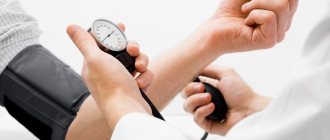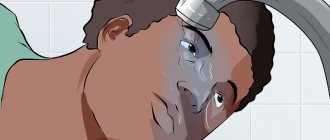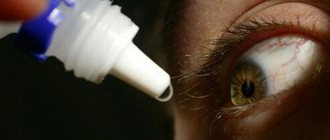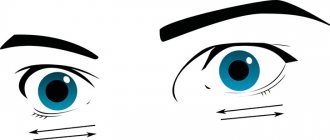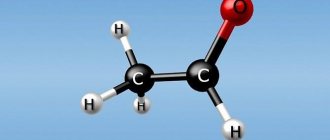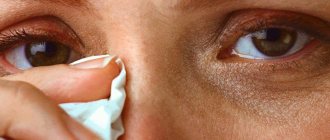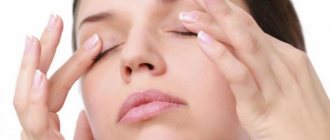High blood pressure, a problem that everyone has heard of. But low blood pressure also occurs quite often, even in young people. If with hypertension everything is more or less clear, there is a clear gradation of numbers, then with hypotension it is not possible to focus only on numbers. One person feels great with a blood pressure of 90/60, but feels unwell when the pressure rises to 120/60. Another person with low blood pressure feels weak and lacks strength.
High or low pressure
At what pressure do you feel dizzy most often? You can feel dizzy and have a headache, both at low and high levels. A common cause is pressure surges (values drop or rise sharply). To more accurately determine the cause of dizziness, consult a doctor to measure your blood pressure.
In addition to pressure, the cause of dizziness is VSD. If this disorder is diagnosed, special medications are usually prescribed to normalize the activity of the autonomic system (for example, Mexidol in tablets or injections).
Another health problem accompanied by this symptom is osteochondrosis. In addition to imbalance, it is associated with pain in the neck, head (especially in the back of the head), and back.
High blood pressure (hypertension)
High blood pressure is diagnosed when readings exceed 140/90. This is one of the most common diseases of civilization.
People who are obese, older people, and smokers are at increased risk of hypertension. In general, the disease is associated with an unhealthy lifestyle, but innate tendencies also play a role. Hypertension often accompanies a number of diseases, usually diseases of the circulatory system, kidneys, and endocrine glands.
Hypertension is manifested by a number of signs, including:
- headache;
- rapid pulse;
- intolerance to stuffiness;
- sensitivity to sudden changes in atmospheric pressure;
- dizziness, etc.
If left untreated, hypertension increases the risk of developing other circulatory diseases, such as:
- atherosclerosis;
- stroke;
- ischemic disease, etc.
Dizziness due to high blood pressure can be alleviated by lifestyle changes, which include a number of measures:
- reducing excessive stress;
- plenty of movement;
- to give up smoking;
- regular meals;
- quality sleep.
It is also important to change your eating habits, reduce the amount of salt and animal fats, and replenish your diet with fiber. Hypertensive patients are also usually prescribed special medications to lower blood pressure (hypertensive drugs)
Hypertensive patients are also usually prescribed special medications to lower blood pressure (hypertensive drugs).
Low blood pressure (hypotension)
Low blood pressure is not life-threatening. But it is characterized by unpleasant accompanying symptoms, such as:
- headache;
- dizziness;
- occasional nausea;
- weakness;
- constantly cold extremities.
Blood pressure less than 110/70 is considered low. The condition is characterized by a slowdown in the pumping of blood in the body. Due to a slower metabolism, the body takes longer to adapt to a new situation. Decreased blood flow requires increased concentration of blood for simple processes occurring in the body. For example, after eating, you may feel tired because the body is fully using the blood for metabolic transformation (removing excess, unnecessary blood from the brain and other organs). This process affects the brain, which is deprived of the necessary blood supply, but is not life-threatening.
If you have low blood pressure and feel dizzy, you can improve your condition with a number of aids, in particular, drinking coffee, black tea, and salt. It is recommended not to smoke, ventilate the room more often, and eat regularly so that the body does not have to spend too much energy on digesting food.
Providing first aid for hypotension
If the pressure drops sharply and the head is dizzy, the patient should be immediately put to bed. In a horizontal position, blood supply to the brain improves, and the patient comes to his senses faster. There is no need to put anything under your head: this can reduce the flow of blood to the brain and increase the risk of blocking the airways. If it is not possible to lie down, you need to sit down and lower your head low (ideally it should be between your knees).
It is necessary to sprinkle cold water on your face, provide a flow of fresh air, and remove uncomfortable, constricting clothing. Let the vapors of vinegar and ammonia inhale. After the person has come to his senses, do not immediately wake him up, calm him down and give him hot tea.
Helps to quickly raise blood pressure:
- a cup of strong coffee;
- ascorbic acid (1 table) + green tea extract (2 tables);
- ginseng tincture 30-40 drops in 200 ml of water (grape juice);
- cordiamine (30 drops) + lemongrass tincture (1 tsp) + glycine (under the tongue, 1 tablet).
If there is a sharp drop in blood pressure, you can take drugs from the group of adrenergic agonists for emergency care.
Hypotension and its causes
Hypotension may be associated with any abnormalities in the body. A person who is characterized by essential hypotension does not experience weakness or dizziness, and his performance is preserved. Nervous strain and sudden changes in position can cause a drop in blood pressure and dizziness. In such cases, the condition can last from several minutes to several hours.
With pathological hypotension, the pressure indicator is from 90/60 mm. rt. Art. and below. Due to the decrease in pressure, insufficient oxygenated blood enters the brain.
Normal indicators
Patients whose hypotension and dizziness are a consequence of a pathological process experience a lot of unpleasant moments. It happens that hypotension is inherited from parents to children, more often it occurs through the female line. As a result of this condition, the child’s physical activity decreases, fatigue and lethargy appear. A distinctive feature of hypotensive patients in adulthood is tall stature and thinness.
A drop in blood pressure and dizziness is associated with a disruption in the functioning of the circulatory system, which is caused by dysfunction of the central nervous system. The most common causes of hypotension are:
- Heart arythmy;
- carotid synthesis syndrome;
- hereditary valve diseases;
- hormonal imbalance;
- cerebral hypoperfusion;
- pathologies of the nervous system;
- large blood loss;
- renal failure;
- drug therapy;
- depression;
- excessive mental activity;
- lack of physical activity;
- metabolic disorder;
- decreased level of hemoglobin in the blood;
- hazardous production;
- disorders of the inner ear and organ of balance;
- pathologies of the respiratory system;
- adrenal gland diseases;
- diseases of the endocrine system;
- passive lifestyle;
- orthostatic collapse.
If hypotension and dizziness are not treated, serious consequences can occur - coronary disease, tissue hypoxia, metabolic disorders in the body, decreased reflex function. In rare severe cases, brain cell atrophy may occur.
To avoid these consequences, you need to monitor your blood pressure. If the readings are below average, you need to consult a doctor and undergo a comprehensive examination to find out the cause of hypotension. Normalizing blood pressure with hypotension involves eliminating risk factors and adjusting lifestyle.
Increased blood pressure
High blood pressure, or hypertension, is another common disease of the circulatory system. As a rule, it develops in patients over 40 years of age and is more common in women.
Table 2: Degrees of arterial hypertension:
| AH degree | Indicators, mm Hg. Art. | |
| GARDEN | DBP | |
| High normal blood pressure | 130-140 | 85-90 |
| 1st degree | 140-160 | 90-100 |
| 2nd degree | 160-180 | 100-110 |
| 3rd degree | ↑ 180 | ↑ 110 |
High blood pressure numbers are dangerous: hypertension often causes fatal complications such as acute coronary syndrome (heart attack), stroke (stroke), etc. In addition, episodes of increased blood pressure are difficult to tolerate for most patients.
Why do you feel sick with high blood pressure, and what other symptoms are accompanied by this disease? Let’s find out.
BP readings can be alarmingly high
Causes and pathogenesis
Risk factors for the development of arterial hypertension are varied.
What are the causes of high blood pressure and dizziness:
- hereditary predisposition;
- excess body weight;
- consuming large amounts of table salt;
- smoking;
- alcohol abuse;
- physical inactivity, sedentary lifestyle;
- frequent stress;
- concomitant atherosclerosis;
- chronic somatic diseases of the kidneys, adrenal glands, endocrine system, blood vessels (cause secondary hypertension);
- taking certain medications, such as glucocorticosteroids.
Risk factors for hypertension according to WHO
Note! Cases of post-traumatic hypertension have been described in medicine. Thus, high blood pressure after a head blow is secondary in nature and is provoked by a violation of the central mechanisms of blood pressure regulation.
The pathogenesis of primary hypertension is complex. To form it you need:
- common ion transport disorders;
- increased contractile potential of vascular smooth muscles;
- increase in left ventricular SBP;
- pathological changes in neurohumoral regulation.
Simply put, the disease is caused either by an increase in cardiac output (too much blood is thrown out during systole, which puts excessive pressure on the arterial walls) or by pathological vasoconstriction.
Constant vascular hypertonicity provokes hypoxic changes in peripheral tissues. Therefore, the main symptoms that high blood pressure provokes - nausea + dizziness, attacks of angina pain - are a consequence of disruption of normal blood circulation in the brain and heart muscle.
The effect of the disease on internal organs
Clinical manifestations
High blood pressure is often called an “insidious killer”: not all patients experience headaches and nausea due to this illness. In most people, hypertension remains asymptomatic for a long time, even if blood pressure levels reach dangerous levels. Often this diagnosis becomes an unpleasant surprise for a person who came to the doctor for a completely different reason.
Blood pressure measurement is one of the methods of screening (preventive) examination
The symptoms of hypertension are the same for both men and women. Among them:
- headache, dizziness;
- nausea, urge to vomit;
- a sharp deterioration in health, weakness;
- anxiety, excitability;
- nosebleeds;
- decreased visual acuity, flashing black spots, “floaters” before the eyes;
- numbness of fingers and toes;
- the appearance of a bright blush, facial hyperemia.
Blurred vision and “spots” in the eyes are one of the specific manifestations of the disease
Can you feel sick with high blood pressure?
Yes, definitely. As in the case of hypotension, an unpleasant symptom can be caused by circulatory disorders in the gastrointestinal tract, or have a central or neurogenic origin (most often). According to patient surveys, the most common symptoms caused by high blood pressure are vomiting and dizziness.
Vomiting with hypertension does not bring relief to the patient
To make a diagnosis of arterial hypertension, measuring blood pressure three times using a tonometer is sufficient. The results obtained will allow us to judge the extent of the disease. But in order to find out the causes of the disease, additional examination will be required.
This may include:
- general clinical tests - blood, urine;
- biochemical blood test;
- ECG;
- echocardiography;
- fluoroscopy of the OGK;
- arteriography;
- Dopplerography;
- Ultrasound of the kidneys;
- excretory urography;
- consultation of narrow specialists - cardiologist, ophthalmologist, nephrologist, endocrinologist, etc.
Modern diagnostic methods will help determine the cause of the pathology
Possible complications
“High blood pressure and nausea” are typical complaints of a patient with hypertension. Unfortunately, such a disease is not only a cause of poor health, but also a serious threat to health. In the table below we consider typical complications that develop against the background of hypertension.
Table 3: Diseases and acute conditions developing against the background of hypertension:
| System | Complications | |
| Acute | Chronic | |
| CNS |
|
|
| Organs of vision |
|
|
| SSS |
|
|
| Genitourinary system | acute renal failure. |
|
Treatment
Feeling worse, weakness, nausea, dizziness with high blood pressure - what to do? It is important to understand that the treatment of hypertension is a complex process that requires not only the correct selection of medications, but also certain efforts on the part of the patient.
Consult a Professional
Correction of lifestyle with this disease is of primary importance. All patients are recommended:
- Follow the principles of healthy eating. Minimize the amount of saturated fats, easily digestible carbohydrates, processed foods, fast food and other “empty” foods in your diet.
- Limit table salt consumption to 2-3 g/day.
- Lose weight if your body mass index exceeds acceptable values.
- Create favorable conditions for work and rest.
- Avoid stress.
- Quit cigarettes and alcohol.
- Be physically active.
We are for healthy lifestyle
If drug treatment methods are not effective enough, the patient is prescribed antihypertensive drugs. Their main goal is to eliminate the pathogenetic mechanisms of hypertension and reduce blood pressure below 140/90 mmHg. Art.
The right medication will help keep your blood pressure under control.
Currently, there are several pharmacological groups of drugs that lower blood pressure. In this case, the selection of a drug for monotherapy or a combination of drugs is selected by the doctor individually.
For patients who do not have special indications and concomitant ailments, it is preferable to use:
- thiazide diuretics;
- ACE inhibitors;
- angiotensin II receptor blockers;
- calcium antagonists of the nifedipine group.
Cost of commonly prescribed drugs to control hypertension
Important! You should take medications prescribed by a specialist constantly, and not occasionally.
If the pressure increases sharply and the patient develops a hypertensive crisis, the emergency care algorithm includes several steps:
- Call an ambulance".
- Place under the tongue and dissolve the fast-acting drug Captopril at a dosage of 25-50 mg.
- If you have pain in the chest, take Nitroglycerin or Isoket.
Always have emergency supplies on hand
Important! You cannot lower blood pressure sharply - this is dangerous. In each case, the tactics for managing a patient with a hypertensive crisis are selected by the doctor individually.
As we found out, blood pressure is a very important health parameter, because its deviations from the norm can lead to serious consequences. Therefore, 120/80, “like an astronaut,” is the figure to strive for.
We alleviate the condition
When low blood pressure causes dizziness and weakness, the cause of the hypotension must be determined. This will allow the doctor to decide on the treatment method. In case of an acute attack of decreased blood pressure and loss of balance, the patient should be given assistance:
- place the body in a horizontal position;
- raise your legs above head level;
- let the ammonia solution inhale;
- Rub the temporal area with camphor oil or ammonia;
- drink warm water;
- in case of bleeding, apply a cold compress to the stomach before the ambulance arrives;
- calm the person to avoid emotional stress;
- open your eyes wide, focusing your gaze on some object;
- massage the back of your head (massage quickly relieves dizziness).
This condition must be taken seriously. Ignoring such a symptom means leading the body to great complications.
The patient can get rid of dizziness, even chronic ones, on his own at home. To normalize blood pressure, you only need a balanced diet, an active lifestyle and preventive examinations.
A person can increase blood pressure and alleviate his condition with his own hands. This should be done as follows:
- get enough sleep (at least 8-9 hours); if you have sleep disturbances, you should consult a psychotherapist;
- do not make sudden body movements;
- exercise moderately but regularly to stimulate blood circulation;
- know that physical therapy is useful in the presence of heart disease;
- regularly measure blood pressure;
- avoid stressful situations;
- do not give up breakfast, during which people with low blood pressure should drink a cup of natural coffee with sugar;
- go swimming;
- take a contrast shower to strengthen blood vessels.
Physiotherapeutic procedures
- Cryochamber.
- Rubbing with warm water with a gradual decrease in temperature to 10-15*C.
- Charcot/rain/circular shower.
- Turpentine, carbon dioxide, mineral baths.
- Other tonic effects.
It is most convenient to receive a set of procedures during sanatorium-resort treatment. This allows you to take your mind off the stress of everyday life, normalize your sleep and diet. Walking and a good emotional background will make an important contribution to the healing process.
Why do you feel dizzy?
Dizziness due to changes in blood pressure may be accompanied by nausea and vomiting. The causes of the symptom are poor circulation and hypoxia of brain tissue.
Dizziness with high blood pressure occurs due to:
- disorders of blood microcirculation in the brain;
- increasing adrenaline production;
- dysfunction of the autonomic nervous system.
These reasons are interconnected, one stems from the other. The appearance of the symptom may be due to a hypertensive crisis. Patients often note worsening signs of hypertension due to stress, psycho-emotional and physical stress. The development of dizziness can be caused by alcohol abuse, a large amount of salt in the diet or drinking coffee - that is, everything that entails an increase in blood pressure.
Dizziness occurs with both high and low blood pressure, but the reasons are different.
With hypotension, dizziness occurs due to a deterioration in the supply of nutrients and oxygen to brain cells. This is due to poor circulation and anemia, which often causes hypotension. Worsening symptoms can be caused by stress, lack of sleep, and changes in weather conditions. With hypotension, additional symptoms are always observed:
- nausea;
- prostration;
- drowsiness;
- apathy;
- headache;
- hypochondria.
Getting rid of the symptoms of low blood pressure is quite simple, even at home. Hypotension rarely acts as an independent disease. In most cases, the patient's condition is aggravated by neurological disorders, including vegetative-vascular dystonia.
Dizziness at normal blood pressure is not uncommon. The symptom occurs against the background of any diseases associated with circulatory disorders. Most often this is a consequence of osteochondrosis or instability of the vertebrae in the cervical region. The appearance of the symptom in this case is due to compression of the spinal artery by the moving cervical vertebrae.
Another cause of dizziness at normal pressure is a disruption of the vestibular apparatus. Pathology can be either congenital (structural anomalies) or acquired. Disorders of the vestibular apparatus are observed against the background of inflammatory diseases of the middle ear or neuralgia of the corresponding nerves. Only a neurologist can accurately identify the cause.
The connection between vertigo and low blood pressure
Arterial hypotension and dizziness often occur together. This is due to the fact that with low pressure, blood circulation in many internal organs (heart, kidneys, brain, liver) is reduced and gradually leads to a condition characterized by a lack of oxygen. The brain experiences hypoxia due to lack of cerebral circulation. Fainting (syncope) is a short-term loss of consciousness that occurs as a result of reduced blood flow in the vessels of the brain, which occurs with arterial hypotension. Low blood pressure is accompanied by a decrease in perfusion and blood supply to internal organs, including the brain.
Medicines for dizziness
Preparations based on betahistine dihydrochloride normalize the functioning of the inner ear and improve blood flow in the vessels.
Indicated for vestibular dizziness and tinnitus. Medicines containing vinpocetine relax cerebral arteries compressed by spasms and normalize blood density. To eliminate vestibular disorders and reduce the manifestations of migraine, medications with flunarizine are prescribed.
Medicines based on cinnarizine are effective against peripheral dizziness. They normalize vascular tone. For the psychosomatic etiology of dizziness, drugs from the group of benzodiazepines, which are classified as tranquilizers, are used.
If dizziness has become chronic, tablets with dimenhydrinate are prescribed to prevent it. This substance has antiemetic properties. Other groups of tablets for dizziness are also suitable, read in detail here.
There are many medications based on the above substances in pharmacies. Some tablets may contain, for example, 1 mg of the main active ingredient, while others contain less or much more. The dosage will be different in each case. In addition, without an accurate medical diagnosis, it is risky to use drugs without permission. They can only be purchased with a prescription.
Hypotension in pregnant women
During pregnancy, hypotensive women become lethargic and indifferent to everything, their hands and feet are constantly cold or even numb. In the morning they have difficulty getting out of bed, and during the day they suffer from attacks of dizziness or tinnitus. Some people experience fainting. The reason for this is pregnancy hormones. They reduce the muscle tone of the uterus and at the same time relax the blood vessels, as a result of which a significant part of the blood “falls out” from the circulation and stagnates in the veins of the legs.
Women prone to low blood pressure should move more from the very beginning during pregnancy. Climbing stairs, walking, cycling and swimming stimulate blood circulation and help blood flow out of the legs. It is useful to massage your feet with a brush in the morning, as well as do contrasting douses with water.
The gynecologist may advise the expectant mother to wear special compressor stockings that compress the blood vessels of the legs. The doctor begins to treat a pregnant woman with medications only if the blood pressure is so low that sufficient blood supply to the placenta is no longer provided.
Drowsiness and Dizziness Causes of These Symptoms
Probably everyone has experienced the condition in which one feels sleepy and dizzy in the middle of the day. Often such people receive one useful piece of advice - to get a good night's sleep, so that tomorrow this problem will no longer bother you. Indeed, in the current rhythm of life, it is not easy to maintain a work and rest schedule, and therefore drowsiness and dizziness are frequent companions of an active person. In addition, temporary drowsiness can be caused by a change in weather or a long stay in a stuffy room, a change in time zones during a flight, or even a hearty lunch. But what to do in the case when even rest does not bring the desired vigor, and slight dizziness and lethargy torment you every day? “Get to the doctor immediately!” - say experts, and they are absolutely right, because such harmless symptoms can indicate serious diseases in the body. Let's look at the most likely reasons.
Hypotension
Very often, dizziness coupled with constant drowsiness is observed in people with low blood pressure. Due to insufficient blood flow in the brain, the blood supply to this organ decreases, which means the brain lacks oxygen. This condition can be recognized not only by dizziness and painful drowsiness, but also by constant weakness, lethargy, and possibly headache. You can verify that these symptoms are due to hypotension by measuring your blood pressure daily. If it is constantly below normal, you should consult a therapist.
Diabetes
According to doctors, if a person suffers from regular daytime sleepiness and also complains of dizziness, it is worth checking whether he has diabetes. In case of an imbalance between the production of glucose and its utilization, the patient is drawn to sleep, and the glucose level can be either low or high. This condition can be recognized by itchy skin, dry mouth, frequent urge to urinate, constant dizziness and low blood pressure. If at least three of the above symptoms are present in a person, he should visit an endocrinologist and take a blood test for sugar.
Thyroid dysfunction
It is known that thyroid hormones regulate metabolism in the body, and therefore significantly affect a person’s weight and vitality. In case of insufficient production of thyroid hormones, a condition called hypothyroidism occurs, which is characterized by a slowdown in metabolism, which means the appearance of drowsiness and weakness in the body. In addition to these symptoms, hypothyroidism is characterized by constant mild dizziness, increased fatigue, decreased memory, weight gain, as well as dry skin and brittle hair. If you are overcome by the listed symptoms, it makes sense to visit an endocrinologist and check your thyroid hormone levels.
Apnea syndrome
This syndrome manifests itself as short-term breath holding during sleep. If a person suffers from this disease, his brain does not get proper rest at night, trying to make up for lost time during the day. It is difficult to notice apnea yourself, but a husband or wife can easily do it. Dizziness in this case occurs rarely and in a mild form, and another symptom indicating the presence of the disease is high blood pressure in the morning. A somnologist will help you get rid of the problem, who, after conducting the necessary research, will find out the cause of apnea and tell you how to get rid of the disease.
Iron-deficiency anemia
With this disease, drowsiness and dizziness most often occur, and all because due to a lack of iron, the production of hemoglobin is reduced and the brain simply does not have enough oxygen, as a result of which it “suffocates.” You also need to fight the disease under the supervision of a therapist, who will prescribe iron-containing medications and advise an appropriate diet. Good health to you!
How to treat low blood pressure
After the examination, the doctor prescribes the necessary medications and gives recommendations for lifestyle changes.
Many people wonder what can be taken for low blood pressure and dizziness? Treatment of secondary hypotension is aimed at the underlying disease. The main goal of therapy for essential hypotension is to stabilize blood circulation and prevent insufficient organ circulation.
If, for example, the cause is cardiovascular disease or a hormonal disorder, appropriate drug therapy with tablets is prescribed. Some cardiac arrhythmias may also require implantation of a pacemaker.
What should you not take if you have low blood pressure or dizziness? To reduce the frequency of dizziness attacks, you need to give up nicotine, alcohol, caffeine and other psychotropic substances. After lying down for a long time, you should not get up too quickly. Wearing compression stockings at all times is recommended. In some cases, you may need to take hypertensive medications for a short period of time. It should be noted that hypertensive drugs should not be taken by children, adolescents and pregnant women.
If your blood pressure is low, it is recommended to lie on your back and raise your legs up.
Patients ask what to do if a sudden attack of dizziness occurs with low blood pressure? If blood pressure suddenly decreases, you need to raise your legs up and keep them in this position for at least 10 minutes. If symptoms persist longer or the person faints, it is necessary to call an ambulance or go to the nearest medical center.
A patient who has lost consciousness requires artificial respiration and cardiac massage. If breathing and pulse are restored, you need to turn the patient on his side and wait for the ambulance.
Signs of hypotension can occur as a manifestation of a number of diseases. Most often, this is a consequence of a disruption in the normal functioning of the human nervous system. If you have low blood pressure and feel dizzy, you need to consult specialists from different medical fields. To make a correct diagnosis, a number of examinations are prescribed. The treatment is complex. Prevention involves changing lifestyle, adjusting diet, and unconventional methods of therapy.
Drugs
To normalize tone, it is possible to take adaptogens in courses1:
- Eleutherococcus;
- ginseng;
- Aralia;
- pantocrine;
- lemongrass
If arterial hypotension is a consequence of other diseases, it is necessary to carry out treatment aimed at these problems.
In case of adrenal insufficiency, lifelong replacement therapy may be prescribed. Depending on the type of violation, the following is used:
- glucocorticoids (cortef);
- mineralocorticoids (cortineff).
A special case and difficulty for the doctor and the patient is the combination of arterial hypotension and hypertension. Since the treatment methods are radically opposite, choosing the right treatment method is not easy.
In any case, the prescription and correction of treatment should be made by a doctor. At the same time, success in treatment cannot be achieved without the patient’s efforts.
Why is lower blood pressure low, symptoms, what to do about it
From this article you will learn what low blood pressure may indicate and what additional symptoms it is accompanied by. Ways to deal with the problem: drug treatment, folk remedies.
Diastolic (lower) pressure is the pressure exerted by the blood on the vessels when the heart muscle relaxes. Normally it should be from 60 to 80 mmHg. Art. or by 30–40 mm Hg. Art. below systolic (upper) pressure.
This pressure may be lower than normal due to weakening of blood vessels or a decrease in the volume of circulating blood. This is dangerous, since low diastolic pressure leads to stagnation of blood in the systemic and pulmonary circulation. The risk of heart attack and stroke increases.
When diastolic pressure decreases, systolic pressure sometimes decreases. Sometimes it remains within normal limits. And sometimes it increases, because with chronically decreased vascular tone, the heart begins to contract more actively so that there is no stagnation of blood.
The following are causes, symptoms and treatment methods that are more relevant for low lower blood pressure than high blood pressure or both (although all options for low blood pressure are similar to each other).
If your diastolic pressure has dropped, contact your doctor.
Causes
Weakening of blood vessels can be caused by physical inactivity, bad habits, poor diet, chronic fatigue, lack of sleep, and frequent stress. Vascular tone also decreases in certain diseases.
Lower pressure decreases for the following reasons:
- Astheno-neurotic syndrome. Vascular tone is impaired due to the characteristics of the nervous system.
- Vegetative-vascular dystonia of the hypotonic type is a violation of the regulation of vascular tone by the autonomic nervous system.
- Hypothyroidism. The vascular walls are relaxed due to a lack of thyroid hormones.
- Severe kidney disease (if not enough renin is released, a substance that maintains vascular tone).
- Infectious diseases: pneumonia, tuberculosis, E. coli, etc.
- Deficiency of vitamins C, E or group B.
- Cervical osteochondrosis.
- Blood loss (due to injury or too heavy menstruation).
- Decreased hemoglobin levels in the blood.
- Long-term use of antidepressants (tricyclics, MAO inhibitors).
- Marijuana use.
- Unusual climate (when moving, sudden change in weather). The likelihood of problems with blood pressure is especially high among weather-sensitive people and middle-aged and elderly people. Acclimatization takes 5–10 days.
Symptoms
Low blood pressure is always accompanied by discomfort.
Signs that you have low diastolic pressure:
- pressing headache;
- dizziness;
- blurred vision or spots before the eyes;
- drowsiness, weakness, decreased mental and physical performance;
- chest discomfort;
- accelerated heartbeat;
- increased sweating;
- chilliness of hands and feet;
- apathy, irritability, anxiety;
- orthostatic collapse (dizziness, darkening of the eyes, or even loss of consciousness when abruptly assuming a vertical position).
If you notice such symptoms, immediately measure your blood pressure and go to the doctor.
The same symptoms appear when both lower and upper pressure decrease simultaneously.
Diagnostics
Since the causes and treatment of the disease are always interrelated, you must first find out why the lower pressure is low.
For this you will be assigned:
- General blood analysis.
- Blood test for thyroid hormones.
- If necessary, examination of blood vessels, spine, kidneys, lungs.
Treatment
First of all, the underlying disease is treated. If you have, for example, hypothyroidism, you will be prescribed medications to normalize the functioning of the thyroid gland. And drugs to increase diastolic pressure are used as an addition to the main treatment.
Medicines
To increase lower pressure, tonics and vascular strengthening drugs are used.
In case of low lower pressure, the cause of which has not been identified, as well as vegetative-vascular dystonia and astheno-neurotic syndrome, treatment is carried out using tonic drugs. They increase diastolic pressure, eliminate lethargy, weakness, drowsiness, and apathy.
Tonics include:
- ginseng;
- lemongrass
Medicines that strengthen blood vessels will help prevent further problems with blood pressure, improve blood circulation and prevent bleeding:
For astheno-neurotic syndrome, nootropics can be prescribed. They will improve your psycho-emotional state. They will eliminate lethargy, increase performance, and improve blood circulation in the vessels of the brain. This:
- phenibut;
- pantogam.
Treatment
Treatment of arterial hypotension is divided into non-pharmacological and medicinal. The main goal of treatment is to normalize cerebral blood flow.
Drugs
Drug treatment of hypotension and dizziness is based primarily on the established causes of these conditions. Cardiology patients require specialized treatment, which includes the use of antiarrhythmic therapy, surgery, or implantation of a pacemaker. The prescription of medications is carried out exclusively by the attending physician and requires treatment according to the developed scheme.
The principles of treatment are as follows:
- Normalization of blood pressure;
- Restoration and normalization of circulating blood volume;
- Prescribing medications to prevent the development of bradycardia;
- In some cases, the use of compression garments is effective.
The following drugs are effective: fludrocortisone, midodrine and desmopressin. The drugs have vasoconstrictor and antidiuretic effects.
Folk recipes
Traditional medicine includes:
- adherence to the principles of rational nutrition (sufficient protein intake during the day, eating small portions 5-6 times a day, mandatory presence of fruits and vegetables);
- carrying out procedures aimed at strengthening blood vessels - massage, visiting the pool, hydromassage, using a contrast shower);
- night sleep - the head end of the bed should be raised for more efficient distribution of fluid throughout the body;
- herbal teas (chamomile, lemon balm, mint, passionflower), which calm a person in stressful situations and lead to stabilization of his condition.
Orthostatic hypotension
Can you count how many times over the past few days, when getting out of a chair or bed, you felt dizzy, your vision went dark, or you had a slight ringing in your ears? A popular piece of advice comes to mind: don’t stand up abruptly. But you did not notice any excessive sharpness in your movement. Getting up from a lying or sitting position constantly causes you similar problems, which go away after a few seconds. In this case, you suffer from orthostatic hypotension.
Orthostatic hypotension is not a disease. In essence, this is an inadequate response of the body to changes in body position, characteristic of men and women of any age. With a sudden change in position, blood accumulates in the veins of the torso and legs, causing a decrease in blood circulation, a decrease in cardiac output and a temporary decrease in blood pressure.
Typical symptoms of orthostatic hypotension:
- dizziness;
- short-term visual impairment;
- fainting.
If you experience severe dizziness and risk of fainting, the following action will help: sit on a chair, put your elbows on your knees, bend your head between your knees.
Orthostatic hypotension in hypertension
Orthostatic hypotension may occur in patients being treated for hypertension. If this condition occurs, you should consult a doctor. Problems disappear or are significantly reduced after adjusting the dosage of the medication taken (lowering the dose or dividing it into several daily doses).
In most cases, 24-hour ambulatory blood pressure monitoring is required as part of diagnosis and treatment. The patient's condition during a routine visit to the doctor often cannot be objectively assessed, since about 1/3 of patients have white coat syndrome.
Orthostatic hypotension with low blood pressure
Orthostatic hypotension is more common in people suffering from low blood pressure. In these patients, when changing position (from sitting or lying to standing), it decreases even more. There are no universal preventive or therapeutic measures.
The occurrence or current state of orthostatic hypotension is also influenced by external factors. Mostly, we are talking about situations that can lead to dehydration. These include:
- high ambient temperature;
- excessive physical activity;
- overdose of diuretic drugs.
Risks of orthostatic hypotension
More often, young people, especially girls, suffer from orthostatic hypotension. It often intensifies during menstruation. The next group is the elderly, in whom this condition causes severe dizziness and falling.
But orthostatic hypotension can also accompany diseases that damage the nervous system, such as diabetes, diseases of the brain and spinal cord. Therefore, if it suddenly appears (especially if there are no problems with low blood pressure before), it is advisable to consult a doctor.
In other cases, low blood pressure is not considered an emergency, except in cases of loss of consciousness, leading to dangerous falls.
Who is more likely to suffer from low blood pressure?
Arterial hypotension can be physiological and occurs in athletes and people genetically predisposed to this condition. In pathological conditions, arterial hypotension acts as one of the main symptoms of somatoform dysfunction of the cardiovascular system. Its development is also observed in traumatic brain injuries, intracranial hypertension and dysfunction of the thyroid gland and adrenal glands. Pregnant women, children and women are more susceptible to arterial hypotension.
